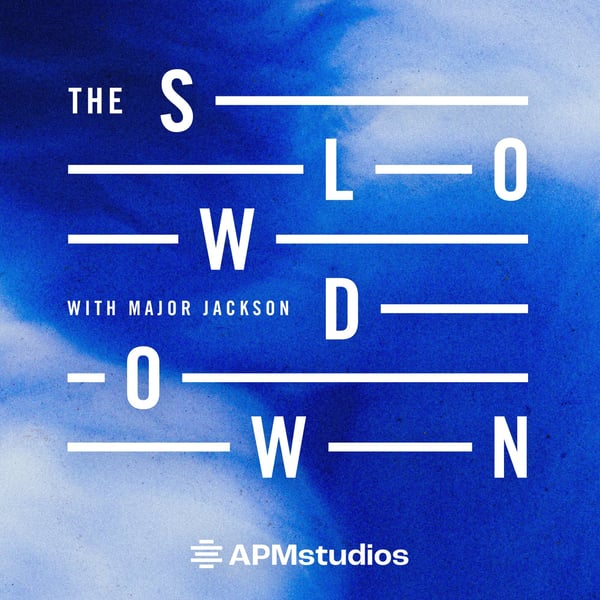1185: Fragment 31 by Sappho, translated by Christopher Childers
The Slowdown: Poetry & Reflection Daily
American Public Media
4.8 • 1.2K Ratings
🗓️ 16 August 2024
⏱️ 7 minutes
🧾️ Download transcript
Summary
Today’s poem is Fragment 31 by Sappho, translated by Christopher Childers.
The Slowdown is your daily poetry ritual. In this episode, Major writes… “If you listen close enough to a poem, especially to the very best of them, you can hear on their surface, the poet’s breathing and silences shaped by the pace and noise of their age. You can hear a voice fastened to the page, the speech of the era in which the poem was written, along with images that float into our mind’s eye which are also of a period like red wheelbarrows, pool players, frigates, and 8-track cassettes.”
Celebrate the power of poems with a gift to The Slowdown today. Every donation makes a difference: https://tinyurl.com/rjm4synp
Transcript
Click on a timestamp to play from that location
| 0:00.0 | As a public media podcast, the slowdown relies on donations from our community of listeners. |
| 0:06.0 | Contribute today to help power our show for episodes to come. |
| 0:10.4 | Visit slowdown Show.org |
| 0:13.0 | and thank you. |
| 0:16.0 | I'm Major Jackson and this is the slowdown. I love the notion of the poem as a carrier of time, a capsule of a period, a container of a moment. a |
| 0:43.0 | container of a moment. |
| 0:45.0 | The poet's distinct privilege is to divine the error in which they live. |
| 0:51.0 | Simply by casting their composing eye and ear in the direction of their passions and observations. |
| 0:59.6 | The poet gets to preserve in language what they insist as important to note and to carry that across time to future readers. |
| 1:10.0 | What matters to the poets matters to us. |
| 1:14.4 | As such, I am curious as to what is brought forward into the present, |
| 1:20.0 | when the poem in all of its manifestations subverts the work of time, which is chiefly one of |
| 1:27.4 | erasure, its predominance, an hour of femoral nature. If you listen close enough to a poem, |
| 1:35.0 | especially to the very best of them, |
| 1:38.0 | you can hear on the surface |
| 1:40.0 | the poet's breathing and silences shaped by the pace and noise of their age. |
| 1:47.1 | You can hear a voice fastened to the page, the speech of the era in which the poem was written, along with images that float into our |
| 1:56.8 | mind's eye, which are also of a period, like red wheelbarrows, Pool Players, Frigots, and Eight Track Cossets. |
| 2:08.4 | I hear the spirit of 19th Century America and Walt Whitman's pioneering lush lines. In the poetry of T.S. |
| 2:17.2 | Elliot, I hear the fragmentary sped up consciousness of the period between the world wars. |
| 2:25.0 | And I hear the spirit of radical resistance of the 1960s |
| 2:30.0 | in a Mary Barracas poems. |
... |
Please login to see the full transcript.
Disclaimer: The podcast and artwork embedded on this page are from American Public Media, and are the property of its owner and not affiliated with or endorsed by Tapesearch.
Generated transcripts are the property of American Public Media and are distributed freely under the Fair Use doctrine. Transcripts generated by Tapesearch are not guaranteed to be accurate.
Copyright © Tapesearch 2025.

